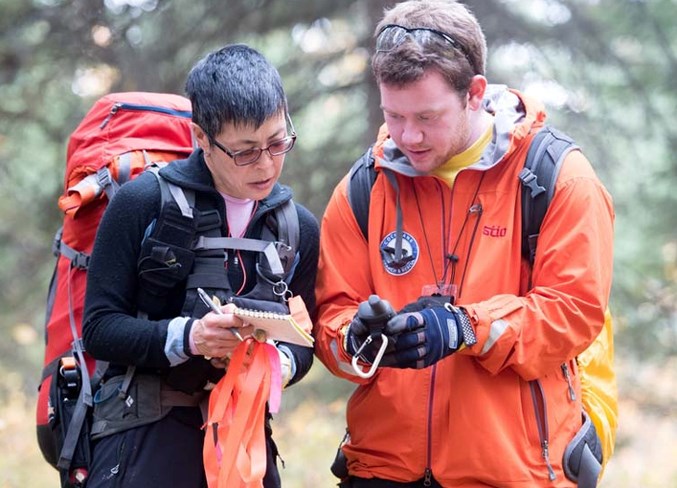Cochrane Search and Rescue held its first joint meeting with regional first responders on July 11 to help foster a better understanding of the group's capabilities. Andy Potton, secretary of search and rescue, said the focus was to educate local agencies who were invited to the meeting, including RCMP and Fire Services on what the volunteer-based group can offer in various deployment scenarios. "Bringing them all to the table, people forget, or not so much forget but sometimes make the assumption, that search and rescue just does one thing and that pretty much is not the case," Potton said, who added his group can also help with provincial emergencies when needed. "With all the teams across the province, they've got a multitude of skill sets and having these meetings at least once a year allows everybody to reconnect and understand once again what we can do." Cochrane's search and rescue team is comprised of 54 volunteers but they're not all from emergency services backgrounds – one minute they could be working a desk job and the next they could be heading to aid with a flood. "We've got ... a broad spectrum like engineers, professionals, managers, a whole ton. Pretty much every single type of employment out there," Potton said. "All of them through that bring a unique skill set which makes search and rescue so good because we bring such diversity." "At times, we cannot be utilized in certain situations because with us being volunteers, we have to be very mindful of risk assessment for our volunteers before we're able to deploy," Potton said. "If, for example, long-line rescue is required, we don't have the training for that so we wouldn't dream of deploying into that environment. It all comes down to what we're trained to do and making sure we stay within that." Potton said when a call is made for search and rescue, there is often a good response from members. "We get really good consistent numbers from Cochrane, a lot of the employers for the people who are employed are really understanding," Potton said. Another goal for the meeting is to identify possible service gaps within search and rescue or within other emergency services and offer solutions, such as joint training sessions. "If we notice a big gap ... we'll perhaps need to get more training in a certain area to better assist our tasking agencies. That's why it's always good to have a big round table debrief about what happened over the past year and how we can work together to ensure that we are able to be utilized more effectively," Potton said. "We can assist them to highlight any gaps that they have and vice-versa." The inaugural meeting marks the first of what he hopes to be an annual event.




